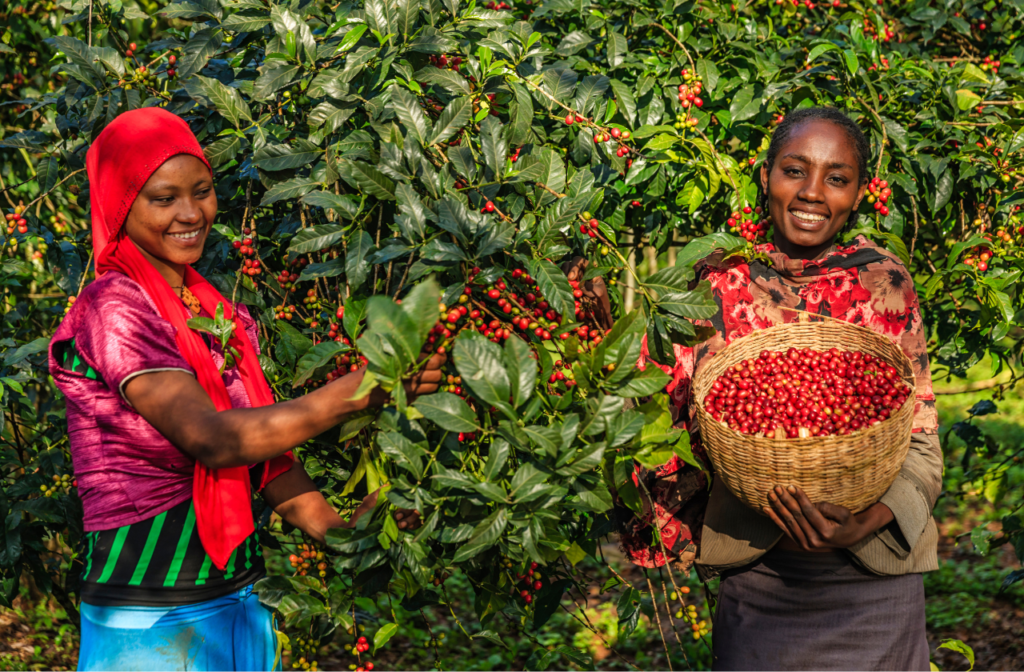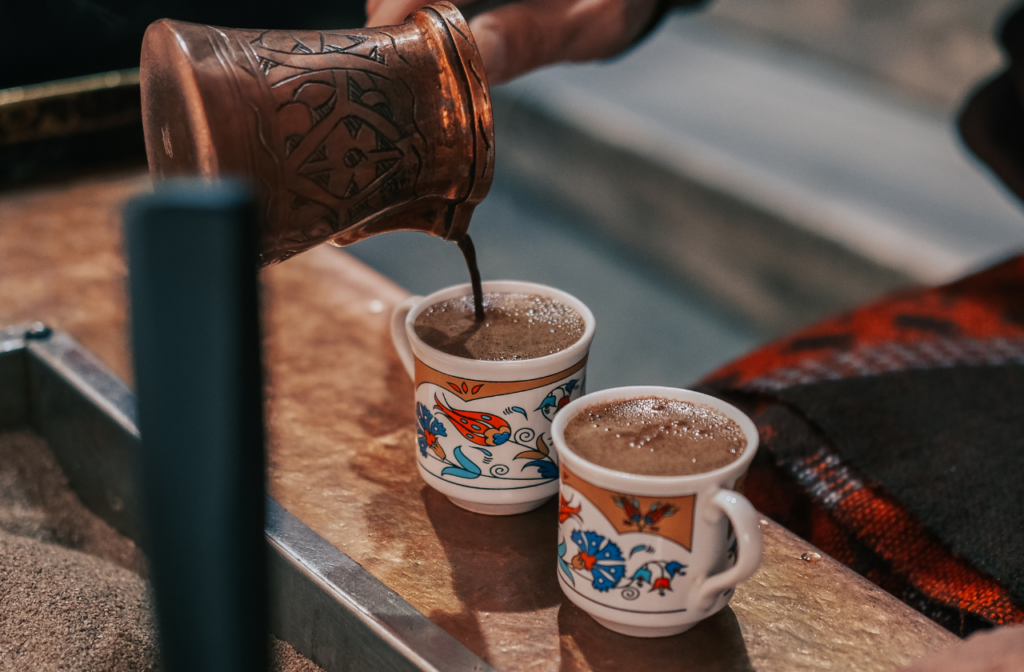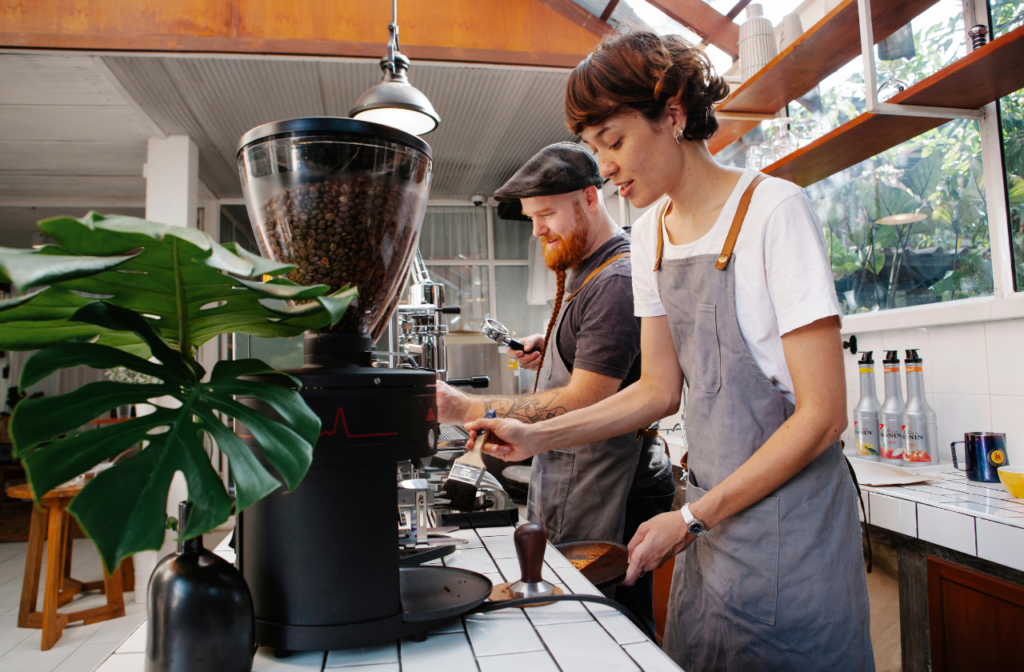Why Coffee Holds a Special Place in Cultures Worldwide
Coffee is a beverage with humble origins that has transcended its role as a mere drink to become a symbol of cultural identity and belonging. Found in diverse cultures worldwide, coffee has woven itself into the fabric of daily rituals, social interactions, and national pride.
Coffee holds a special place is cultures wordwide, as it has become an important part of traditions, events, social gatherings, and certain rituals in many societies internationally. Coffee is enjoyed all over the world, and form a significant aspect of many traditions.
From traditional Turkish coffee ceremonies to the vibrant coffeehouses of Italy, the unique brewing techniques and distinct flavors reflect the values and traditions of each culture; coffee has become far more important than most people realize. Let’s discover why coffee holds a special place in the hearts of people across the globe.
Origins of Coffee in Different Cultures

The origins of coffee in different cultures can be traced back to the cultivation and consumption practices of various societies throughout history. Coffee has had a profound cultural impact and holds great historical significance in these diverse societies.
In Ethiopia, the birthplace of coffee, the beverage has been an integral part of daily life for centuries. Coffee ceremonies are a symbol of hospitality and an important social ritual.
The Ethiopian people have a deep appreciation for the cultural significance of coffee, often gathering in groups to roast, grind, and brew the beans together. This communal experience fosters a sense of belonging and strengthens social bonds.
Similarly, in Turkey, coffee has a long-standing tradition and is an essential part of the social fabric. Turkish coffee is prepared using a unique brewing method that produces a strong and aromatic drink.
It is served in small cups and is often accompanied by sweet treats. Coffee houses, known as ‘kahvehane,’ have historically served as gathering places for intellectual discussions and cultural exchanges, further emphasizing the cultural importance of coffee.
In contrast, in Italy, coffee holds a different cultural significance. Italians have perfected the art of espresso, which is enjoyed throughout the day. The Italian coffee culture revolves around quick, strong shots of espresso, often consumed standing at a bar.
Coffee bars in Italy serve as meeting places for locals, fostering a sense of community and providing a space for social interactions.
The origins of coffee in different cultures have shaped its cultural impact and historical significance. From Ethiopia to Turkey to Italy, the cultivation and consumption of coffee have played a central role in shaping societal norms, fostering a sense of belonging, and facilitating social connections.
Weird Coffee Tip: The way coffee is grown is a major aspect of the impact this drink has on society and tradition. To learn more about how coffee is grown and what separates good coffee from the rest, have a look at this article:
Organic Coffee Farming Methods
Rituals and Traditions Surrounding Coffee

Coffee rituals and traditions play a significant role in the cultural fabric of societies around the world. These customs passed down through generations, not only bring people together but also reflect the unique values and beliefs of different cultures. Here are some examples of the diverse and meaningful rituals and traditions surrounding coffee:
- Coffee Ceremonies: In Ethiopia, a coffee ceremony is a symbol of hospitality and friendship. The process involves roasting the beans, grinding them, and brewing them in a traditional clay pot called a jebena. The host then serves the coffee in small cups, often accompanied by traditional snacks. This ceremony fosters a sense of community and connection.
- Cultural Significance: In Turkey, coffee has deep cultural significance. The preparation and serving of Turkish coffee have specific rituals, including using a cezve, a small pot, and serving it in small cups. The reading of coffee grounds, known as tasseography, is also a cherished tradition in Turkish culture.
- Social Bonding: In Italy, the daily ritual of enjoying an espresso at a café is a way for people to come together, chat, and build relationships. Coffee breaks, or ‘pausa,’ are an important part of the Italian lifestyle, emphasizing the importance of slowing down and savoring the moment.
- Symbolism: In Japan, the tea ceremony has influenced the way coffee is consumed. The concept of mindfulness and appreciation of aesthetics is reflected in the careful preparation and presentation of coffee. The act of serving and receiving coffee is seen as a form of respect and gratitude.
- Spiritual Connection: In some Middle Eastern countries, coffee is a part of religious rituals. For example, in Sufi tradition, coffee is served during gatherings to awaken the spiritual senses and enhance spiritual practices.
These rituals and traditions surrounding coffee highlight the cultural diversity and richness that exists worldwide. They serve as an invitation to explore and appreciate the unique customs of different societies, fostering a sense of belonging and connection across borders.
Coffee as a Socializing Agent

Socializing over a cup of coffee is a universal practice that transcends cultural boundaries. Coffee shops around the world serve as social hubs where individuals gather to connect, converse, and build relationships. These establishments provide a welcoming environment conducive to fostering meaningful interactions.
Coffee shops have become more than just places to grab a quick caffeine fix; they have become meeting points for friends, colleagues, and even strangers. Whether it’s catching up with old friends or networking with new acquaintances, coffee shops offer a relaxed setting that encourages conversation and connection.
The role of coffee shops in social gatherings goes beyond the beverages they serve. These establishments provide a neutral space where people can come together, regardless of their backgrounds or social status.
The aroma of freshly brewed coffee, the comfortable seating arrangements, and the ambient atmosphere all contribute to creating a sense of belonging and community.
Moreover, coffee shops often organize events and activities that further facilitate socialization. From open mic nights to book clubs, these venues offer opportunities for individuals to come together around shared interests and passions.
Coffee shops have become integral to the fabric of many communities, fostering a sense of camaraderie and providing a platform for social engagement.
Coffee Varieties and Brewing Techniques

Across diverse cultures, the art of brewing coffee and the wide range of coffee varieties have become an integral part of the coffee shop experience. Coffee lovers worldwide are drawn to the unique flavors and aromas that each variety offers, as well as the different brewing techniques that enhance these characteristics.
Here are some key aspects of the coffee varieties and brewing techniques that contribute to the rich and diverse coffee culture:
- Flavor profiles: Coffee varieties from different regions possess distinct flavor profiles, influenced by factors such as soil composition, climate, and processing methods. From the fruity and floral notes of Ethiopian Yirgacheffe to the chocolatey undertones of Colombian Supremo, exploring the nuances of these varieties allows coffee enthusiasts to embark on a sensory journey.
- Alternative brewing methods: In addition to traditional methods like drip brewing, coffee lovers have embraced alternative techniques that bring out unique flavors. Cold brew, for instance, involves steeping coffee grounds in cold water for an extended period, resulting in a smooth and less acidic brew. Pour over brewing, on the other hand, allows for precise control over water flow, bringing out the delicate flavors of the coffee.
- Ritual and community: Brewing coffee is not just about the end result; it is a ritual that fosters a sense of community. Whether it’s the Ethiopian coffee ceremony or Japanese siphon brewing, these rituals bring people together, creating a sense of belonging and connection.
- Artistry and experimentation: Coffee brewing has evolved into an art form, with baristas constantly pushing the boundaries of creativity. Latte art and specialty brewing equipment like the Aeropress showcase the artistic and experimental side of coffee, allowing for endless possibilities and personalized experiences.
- Sustainability and ethics: The coffee industry has seen a rise in the demand for ethically sourced and sustainably grown coffee. From fair trade certifications to direct trade relationships with farmers, consumers are increasingly aware of the social and environmental impact of their coffee choices.
Coffee as a Symbol of Identity and National Pride

Coffee’s significance as a symbol of identity and national pride is evident in the cultural practices and rituals that surround its consumption. In many countries, coffee has become a cultural icon, representing not only a beverage but also a way of life.
From the traditional Turkish coffee ceremonies to the elaborate Japanese tea ceremonies, coffee rituals are deeply ingrained in the fabric of society.
In some countries, coffee plays a crucial role in the economy, making it an even more significant symbol of national pride. For example, in countries like Colombia and Ethiopia, coffee production is a major source of income and employment.
The coffee industry is not only a means of livelihood but also a source of national pride and identity. These countries take immense pride in their coffee heritage, showcasing their unique coffee varieties and brewing techniques to the world.
Coffee’s economic significance is not limited to coffee-producing countries. In countries where coffee is imported and consumed on a large scale, it contributes to the local economy through cafes, coffee shops, and specialty stores.
These establishments not only serve as gathering places for coffee enthusiasts but also as venues for cultural exchange and expression of national identity.
Frequently Asked Questions

What Are the Health Benefits of Drinking Coffee?
Drinking coffee has been associated with numerous health benefits, such as reduced risk of certain diseases and improved cognitive function. However, it is important to consider the long-term effects and individual sensitivities to caffeine.
How Does the Caffeine Content in Coffee Vary Among Different Varieties?
Variations in caffeine levels among different coffee varieties are influenced by factors such as the type of bean and the roasting process. Understanding these variations can provide insight into the cultural significance of coffee consumption worldwide.
Are There Any Cultural Taboos or Restrictions Related to Coffee Consumption?
Cultural beliefs and coffee etiquette vary across different societies, leading to various taboos and restrictions related to coffee consumption. These cultural norms shape the rituals, social interactions, and meanings associated with coffee, making it an integral part of many cultures worldwide.
What Are Some Unique Coffee-Related Customs or Rituals in Specific Regions?
Coffee-related customs, rituals, and traditions vary across cultures. In some regions, coffee serves as a social bonding activity, bringing people together to share stories and build relationships. These unique practices highlight the importance of coffee in fostering a sense of belonging and community.
Is There a Specific Time of Day or Occasion When Coffee Is Traditionally Consumed in Different Cultures?
Traditional coffee consumption practices vary across cultures, with specific times of day or occasions being significant. Coffee serves as a social bonding activity, bringing people together and creating a sense of belonging through shared experiences and rituals.
Conclusion
In conclusion, coffee holds a significant place in cultures worldwide due to its origins, rituals, socializing aspect, and the variety of brewing techniques.
It serves as a symbol of identity and national pride for many communities. This comparative and ethnographic analysis highlights the diverse ways in which coffee is valued and integrated into different cultural practices.
Its global popularity and cultural significance make it a fascinating subject for further exploration and study.
-
Espresso Express eBook
R180,00 -
From Bean To Brew eBook
R450,00 -
Great Coffee, Made Simple
R0,00









